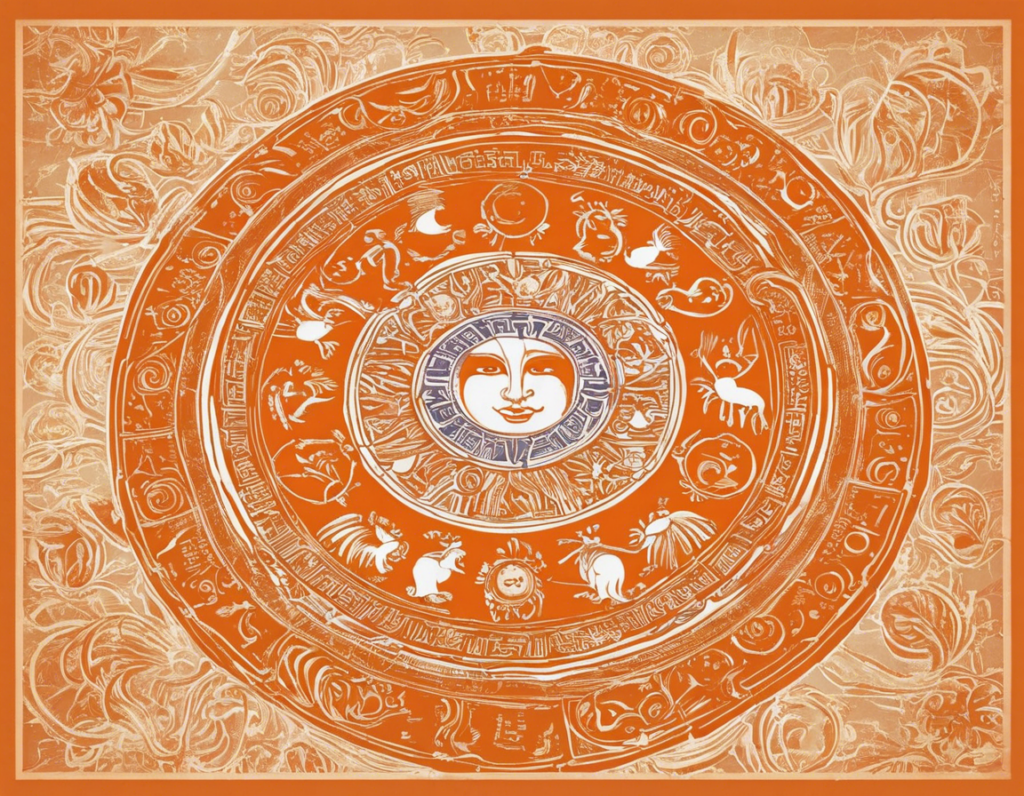Understanding the Panchang: A Comprehensive Guide
The Panchang, an ancient astrological calendar system originating from Vedic astrology, plays a crucial role in Hindu culture and is used to determine auspicious timings for various activities. Derived from the Sanskrit words “Panch” meaning “five” and “Ang” meaning “limbs”, the Panchang comprises five elements: Tithi (lunar day), Vaar (day of the week), Nakshatra (constellation), Yog (an auspicious period) and Karan (half of a Tithi).
The Importance of Panchang in Hindu Culture
In Hindu tradition, the Panchang is consulted to plan important events such as weddings, housewarmings, business ventures, and religious ceremonies. It provides insights into the alignment of cosmic energies and their influence on human life. Following the guidelines of the Panchang is believed to attract positivity, success, and prosperity while reducing the impact of negative influences.
The Components of the Panchang
-
Tithi (Lunar Day): The Tithi is based on the phase of the Moon and consists of 30 lunar days in a lunar month. Each Tithi has its unique significance and influences the outcome of various activities.
-
Vaar (Day of the Week): The Vaar represents the days of the week in Hindu culture and is associated with different deities. Each day is dedicated to a specific deity, and activities conducted on these days are believed to attract blessings.
-
Nakshatra (Constellation): The Nakshatra refers to the 27 lunar constellations that the Moon transits through in its orbit. Each Nakshatra has specific attributes and is used for determining auspicious timings for events.
-
Yog (Auspicious Period): The Yog is a specific combination of the Sun and the Moon and is considered auspicious for initiating new endeavors or conducting important tasks.
-
Karan (Half of a Tithi): The Karan is half of a Tithi and is considered for specific activities such as travel, weddings, and financial transactions.
Consulting the Panchang
Astrologers and pundits prepare Panchangs based on complex calculations involving planetary positions, lunar phases, and other celestial factors. These Panchangs are widely available online, in printed formats, or through traditional calendars. Individuals consult the Panchang to identify auspicious timings for starting new ventures, embarking on journeys, conducting ceremonies, or seeking remedies for unfavorable planetary positions.
Tips for Using the Panchang
-
Plan in Advance: Check the Panchang regularly to plan important activities well in advance. This ensures that you can align your actions with favorable cosmic influences.
-
Consult an Expert: If you are unfamiliar with interpreting the Panchang or its implications, seek guidance from experienced astrologers or priests. They can provide insights and recommendations based on your specific circumstances.
-
Follow Rituals: Perform rituals or prayers during auspicious timings indicated in the Panchang to maximize the benefits of celestial energies.
-
Stay Mindful: Remain attentive to the recommendations provided by the Panchang and avoid scheduling critical activities during inauspicious periods to prevent obstacles or challenges.
Frequently Asked Questions (FAQs) about the Panchang
-
What is the significance of Tithi in the Panchang?
The Tithi represents the lunar day and is crucial for determining auspicious timings for various activities based on the position of the Moon. -
How do I find an accurate Panchang for my location?
You can access online platforms that offer personalized Panchangs based on your location and timezone for accurate predictions. -
Can the Panchang be used for personal growth and well-being?
Yes, following the recommendations of the Panchang can help in attracting positive energies, enhancing personal growth, and ensuring overall well-being. -
Are there specific rituals associated with consulting the Panchang?
While there are no strict rituals, it is advisable to approach the Panchang with respect and reverence, seeking guidance for important decisions. -
Is the Panchang only relevant for Hindu practices?
While traditionally associated with Hindu culture, the principles of the Panchang can be applied universally for seeking auspicious timings and aligning with celestial energies.
In conclusion, the Panchang serves as a valuable tool for navigating life’s significant moments and aligning with cosmic energies for favorable outcomes. By understanding its components, consulting it regularly, and following its recommendations, individuals can harness its power to lead a more harmonious and prosperous life.
